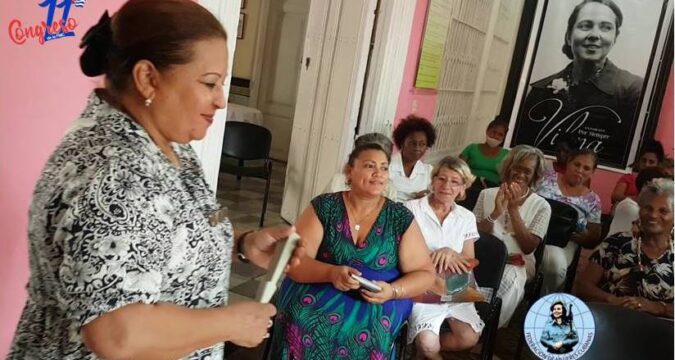
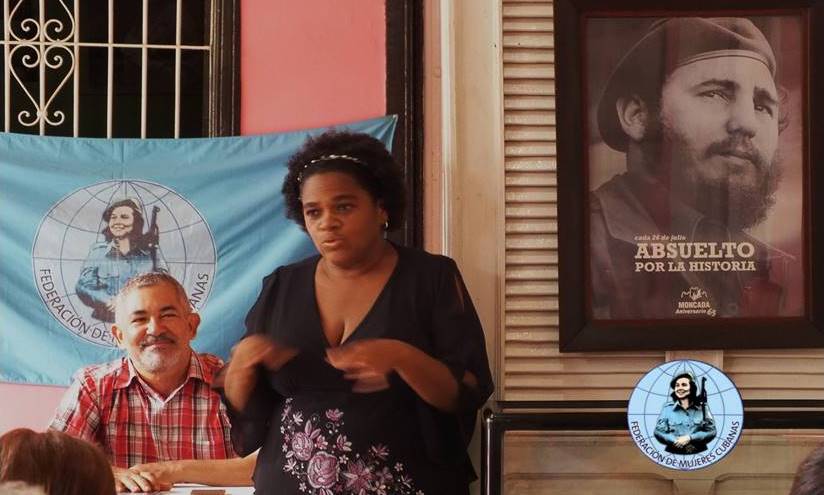
By: Santiago Romero Chang
Translated by MSc. Guillermo Rodriguez Cortes
«We are nonconformist and we have to move forward as Fidel always summoned us!», said to CMKC the member of the Political Bureau, Teresa Amarelle, General Secretary of the Federation of Cuban Women (FMC) in an exclusive interview with this reporter at the closing of the Workshop «Fidel and Women in Revolution, 2023».
It all took place in the only Vilma Espin Memorial in the country, located in her former house, No 473 San Geronimo Street, between Calvario and Carniceria Streets, in downtown Santiago de Cuba.
There, where Vilma Espin lived, Fidel’s leadership was evoked, his influence in the current context of the challenges of Cuban women in important tasks of the Revolution, in the contribution to the social and economic development of the country, in health, sciences, tourism, in the legal struggles, in the communities, neighborhoods and work and study centers. How Fidel warned about many of today’s problems and the role of unity, women’s leadership, their intelligence in the difficult but not impossible progress for better social communication, the essential new Cuban Observatory on gender equality, such as the meetings of Voices of Women for Non-Violence and the National Program for the Advancement of Women.
This was the subject of the Keynote Lecture by historian and university professor, Dr. Manuel Pevida, when he spoke of Vilma Espin’s incorporation and performance «in the student struggles, the underground struggle, the Rebel Army, her unconditional support to the revolutionary process, the extensive work deployed for women’s equality and the rights of all men and women at national and international level, and how they made her worthy of important national and international decorations.»
Elena Castillo Rodríguez, Secretary General of the FMC, thanked the researchers: Dr. Giovanni L. Villalon and MSc. Rosaida Savigne both specialists of the Territorial Delegation of Science, Technology and Environment, authors of the book «Women of Science», whose text confirms the female leadership of Santiago in several areas with international impact.
Afterwards, Teresa Amarelle, Secretary General of the FMC thanked the artistic participation of the Macuba Group with texts of Love on Cuban Women; in addition, the recognition to two comrades: the Combatant of the Cuban Revolution, Maria Hipolito and the teacher Rosa Despaigne, mentioned by Fidel on several occasions; both will be decorated during the celebrations of August 23, 63rd Anniversary of the Federation of Cuban Women (FMC).
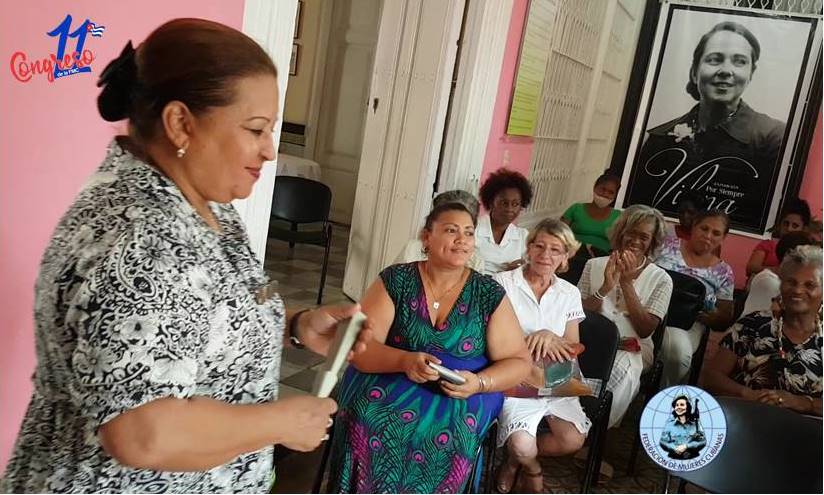
Women of Science
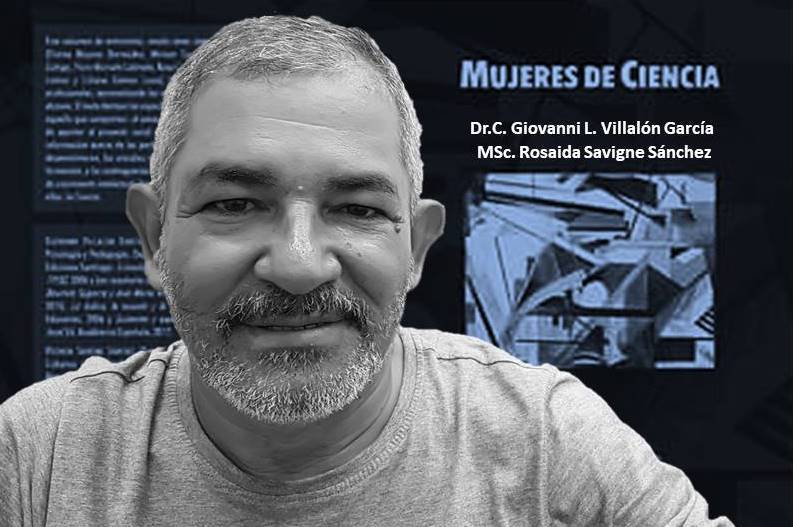
Today, Dr. C. Giovanni L. Villalon directs the Caribbean Research Center and does not conclude this book, on the contrary, there are many expectations in the scientific guild because the new birth of “Women of Science” is about to take place with the updating and perspectives of studies.
When reviewing once again “Women of Science”, many questions arise: What interest can the gender methodology offer us for those who are considered women of science? Why is there little talk about the example of our female researchers? Why is there not a more dynamic and multidisciplinary project that includes the rescue of these archives? Was it or not, crazy, to withdraw the approach of Santiago de Cuba as a Scientific Pole before so many human potentials, even with results that transcend today?
“Women of Science” is one of those jewels that we hope will arrive someday as a proposal to the “10 Questions TV Show”, as a text that is conspicuous by its absence in the Media, in the audiovisual production, in the bibliographical references of many Theses and Master’s Degrees.
Vilma, the Example of an Emancipated Woman
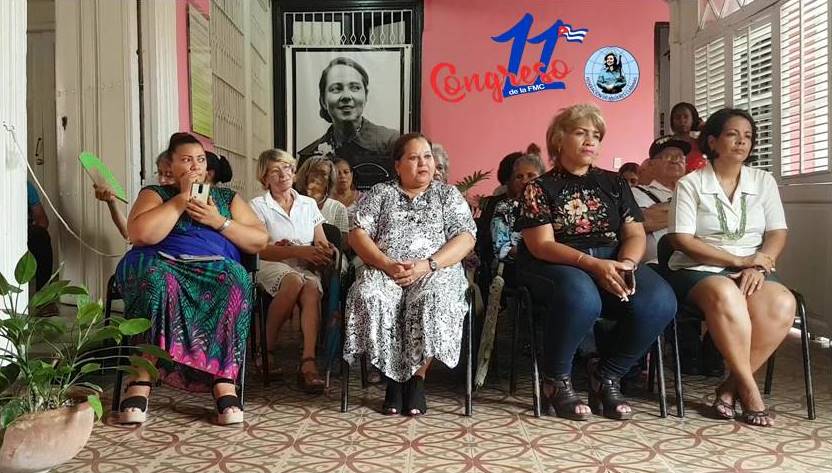
FMC Grants August 23rd Distinction
The Federation of Cuban Women (FMC in Spanish) granted the August 23rd Distinction to professionals from different sectors of society with relevant work in the defense of the Revolution and gender equality.
In the Stained Glass Hall in this city, Yazmin Tortoza, one of the honorees, said that maintaining the legacy of Vilma Espín, eternal president of the organization, and continuing with the defense of the socialist project are commitments of the women’s vanguard. She underlined the challenge of developing policies and programs aimed at achieving the full exercise of women’s equality and against violence and any kind of discrimination.
According to Orestes Batista, director of Oriente Pharmaceutical Lab, and the only awarded man, the distinction means to maintain the leadership of this important industry in the production of medicine for the well-being of the people.
The ceremony was headed by Dayami Cola, official of the Provincial Committee of the Communist Party of Cuba, and Elena Castillo, secretary of the FMC in the province.
The Federation of Cuban Women (FMC) is a Cuban mass organization founded on August 23, 1960, whose objective is the equality and emancipation of women and which has more than four million members. The organization was created by Vilma Espin who presided over the federation until her death on June 19, 2007. In Santiago de Cuba the FMC groups more than 420,000 women and works for the welfare of the family through community, educational, counseling, preventive and social care actions.























